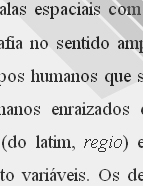

................................
The concern with gathering information for a deeper understanding of the country’s reality had led the Minister of Public Works, Trade and Industry, António Alfredo Barjona de Freitas, to launch an annual competition for monographs on rural parishes in 1909. The report in which he presents it is explicit about its objectives. The aim was to begin the much-needed investigation into the economic and social life of the Portuguese nation, starting with the smallest and most homogeneous administrative unit with a long historical tradition, namely the rural parish. In the same year, the University of Coimbra invited sociologist Léon Poinsard to give lectures on the methods of studying small communities then used in the field of social science in France. This resulted in a publication disseminating the so-called ‘monographic method’ and a work by L. Poinsard, Le Portugal Inconnu, published in the bulletin of the International Society of Social Science in 1910 (a Portuguese translation was published in 1912). Economic description and demographic statistics had already been important in regional and local studies since the second half of the 19th century, but the sociological approach and, through it, the first steps towards a social history, only began to be seriously considered at the beginning of the new century. From the perspective of the appreciation of regional and local studies in the early decades of the 20th century, Fidelino de Figueiredo, one of the founders of the Portuguese Society for Historical Studies (1914), should also be mentioned. A professor, historian, literary critic and essayist, he emphasised the importance of local historical studies, drawing attention to the need to publish “volumes of documents from public and private archives, all prepared in accordance with a previously established plan for extracting, grouping and classifying information, creating indexes, etc.” (Quoted from “O Minho nas Monografias (sécs. XIX-XX”, 1991-92, p. 34). At the same time, he believed that when there were enough local studies, it would be possible to include in primary school curricula the history of the region or the city or town where the majority of the population ends up spending their lives. In line with this thinking, he would include local history in the secondary school curriculum approved by the Sidónio Pais government in 1918. Fidelino de Figueiredo was part of a generation in which nationalism was combined with regionalist and municipalist values. These were not seen as opposites or conflicting, but as part of the process of constructing an idea of the nation that could not, of course, exclude its various components. Still in the field of theory and methodology, it is important to highlight the proposal made by Professor Marcello Caetano to his students of Administrative Law to write monographs on Portuguese municipalities (1935).
This work is financed by national funds through FCT - Foundation for Science and Technology, I.P, in the scope of the projects UIDB/04311/2020 and UIDP/04311/2020.
